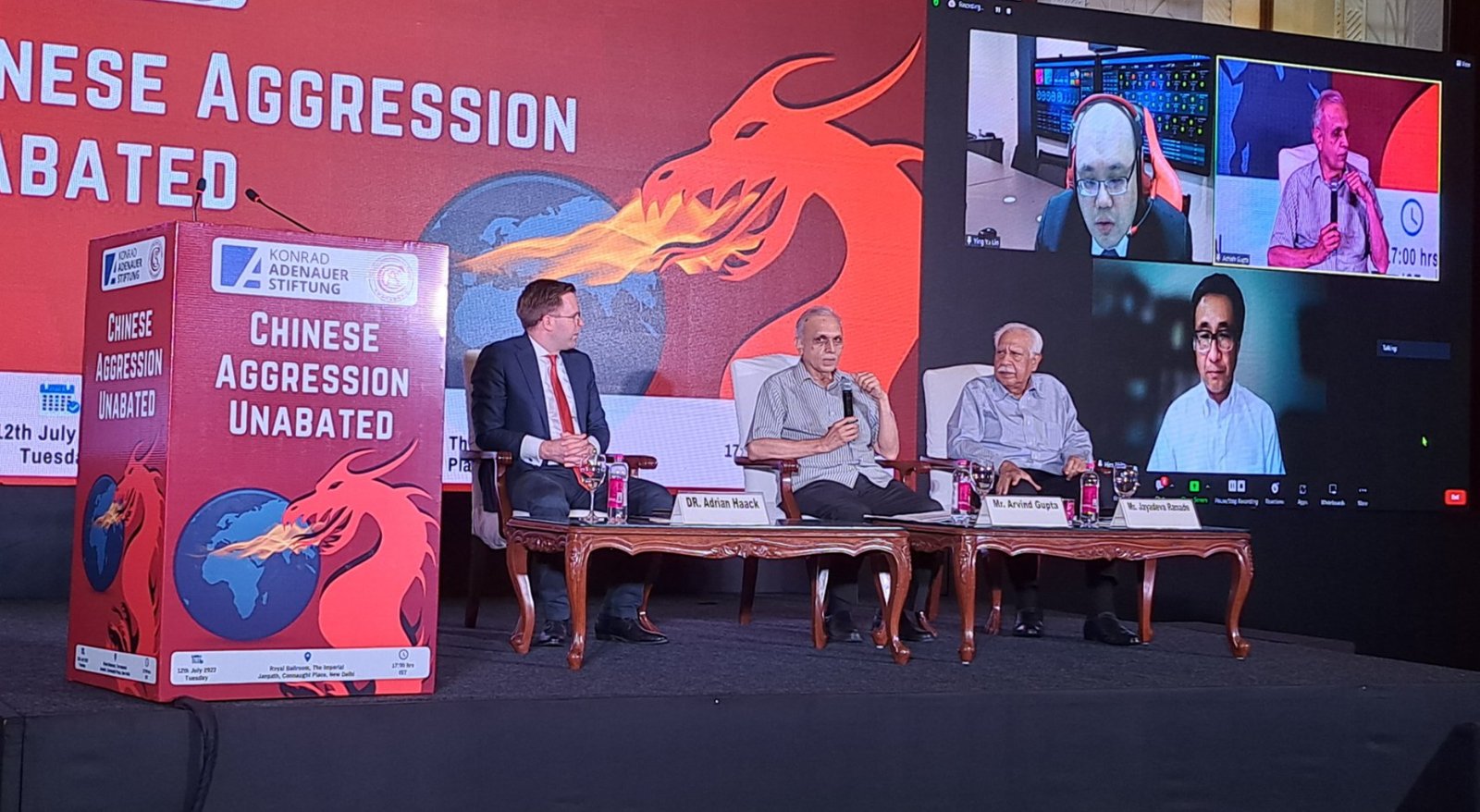CHENNAI: India’s refusal to cow down to China’s aggressive posture at Galwan in 2020 has taken many aback. Though in the coming days, China’s aggression along the LAC has increased, experts at a panel discussion opined that India should engage more with the neighbourhood to confront China.
Joining a panel discussion on ‘China’s aggression Unabated’ organized by Konrad-Adenauer-Stiftung and former RAW officer Jayadeva Ranade run Centre for China Analysis and Strategy, India’s former envoy to China Gautam Bambawale said, “In order to confront China, India should engage more with the neighbourhood and look beyond Quad grouping.”
“China moved troops to eastern Ladakh to establish its hegemony in the region,” Bambawale said. “This is the strategic reason for China’s aggression in Indian territory,” he added.
Bambawale, who travelled widely across the country with an inquisitive mind to know public perception of the Galwan crisis, said, “Indian citizens across the country lack a proper understanding of the Galwan incident.”
“In 2013 and 2014, India and China’s patrolling troops came face-to-face accidentally. But last time, India confronted China by saying they are not sticking to the norms,” Bambawale added.
In the moot on Chinese aggression, a pool of experts discussed the ways to get out of China’s tentacles and the troubles created by Beijing.
Speaking at the event, Japanese Strategic Affairs expert Hiro Akita said, “China wanted to give a message to Japan that Tokyo shouldn’t ally with the US more on Taiwan.”
Commenting on China’s aggression in Taiwan, Akita discussed the joint action declaration of Japan and the US on Taiwan.
Akita, during the panel discussion, raised the issue of the territorial dispute over the Senkaku Islands between Japan and China. He further explained the activities of CCP and Chinese President Xi Jinping.
At the moot, Dr Ying Yu Lin, a Taiwan-based People’s Liberation Army (PLA) and Cyber expert discussed PLA’s activities and threats emanating from China.










